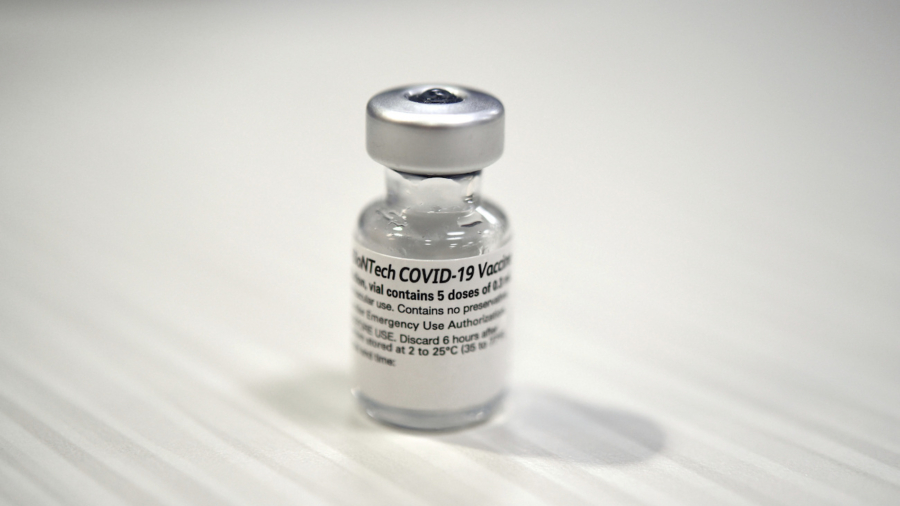Pfizer announced Wednesday that its COVID-19 vaccine is safe and strongly protective in kids as young as 12, a step toward possibly beginning shots in this age group before they head back to school in the fall.
Most COVID-19 vaccines being rolled out worldwide are for adults, who are at higher risk from the coronavirus. Pfizer’s vaccine is authorized for ages 16 and older.
In a study of 2,260 U.S. volunteers ages 12 to 15, preliminary data showed there were no cases of COVID-19 among fully vaccinated adolescents compared to 18 among those given dummy shots, Pfizer reported.
It’s a small study, that hasn’t yet been published, however researchers reported high levels of virus-fighting antibodies, somewhat higher than were seen in studies of young adults.
Kids had side effects similar to young adults, the company said. The main side effects are pain, fever, chills, and fatigue, particularly after the second dose. The study will continue to track participants for two years for more information about long-term protection and safety.
Pfizer and its German partner BioNTech in the coming weeks plan to ask the U.S. Food and Drug Administration and European regulators to allow emergency use of the shots starting at age 12.
“We share the urgency to expand the use of our vaccine,” Pfizer CEO Albert Bourla said in a statement. He expressed “the hope of starting to vaccinate this age group before the start of the next school year” in the United States.
Pfizer isn’t the only company seeking to lower the age limit for its vaccine. Results also are expected by the middle of this year from a U.S. study of Moderna’s vaccine in 12- to 17-year-olds.
The FDA has already allowed both companies to begin U.S. studies in children 11 and younger, working their way to as young as six-month-olds.

AstraZeneca last month began a study of its vaccine among 6- to 17-year-olds in Britain. Johnson & Johnson is planning its own pediatric studies. And in China, Sinovac recently announced it has submitted preliminary data to Chinese regulators showing its vaccine is safe in children as young as three.
While most COVID-19 vaccines being used globally were first tested in tens of thousands of adults, pediatric studies won’t need to be nearly as large. Scientists have safety information from those studies and from subsequent vaccinations in millions more adults.
One key question is the dosage: Pfizer gave the 12-and-older participants the same dose adults receive, while testing different doses in younger children.
It’s not clear how quickly the FDA would act on Pfizer’s request to allow vaccination starting at age 12. The agency has taken about three weeks to review and authorize each of the vaccines currently available for adults. That process included holding a public meeting of outside experts to review and vote on the safety and effectiveness of each shot.
The process for reviewing data in children could be shorter, given FDA’s familiarity with each vaccine. An agency spokeswoman said the FDA had no information to share on how the review would work, including whether additional public meetings would be required.
Another question is when the country would have enough supply of shots.
Supplies are set to steadily increase over the spring and summer, at the same time states are opening vaccinations to younger, healthier adults who until now haven’t had a turn.
Children represent about 13 percent of COVID-19 cases documented in the United States. And while children are far less likely than adults to get seriously ill, at least 268 have allegedly died from COVID-19 in the United States alone and more than 13,500 have been hospitalized, according to a tally by the American Academy of Pediatrics.
Caleb Chung, who turns 13 later this week, agreed to volunteer after his father, a Duke University pediatrician, presented the option. He doesn’t know if he received the vaccine or a placebo.
“Usually I’m just at home doing online school and there’s not much I can really do to fight back against the virus,” Caleb said in a recent interview. The study “was really somewhere that I could actually help out.”
His father, Dr. Richard Chung, said he’s proud of his son and all the other children volunteering for the needle pricks, blood tests, and other tasks a study entails.
By Lauran Neergaard and Matthew Perrone


